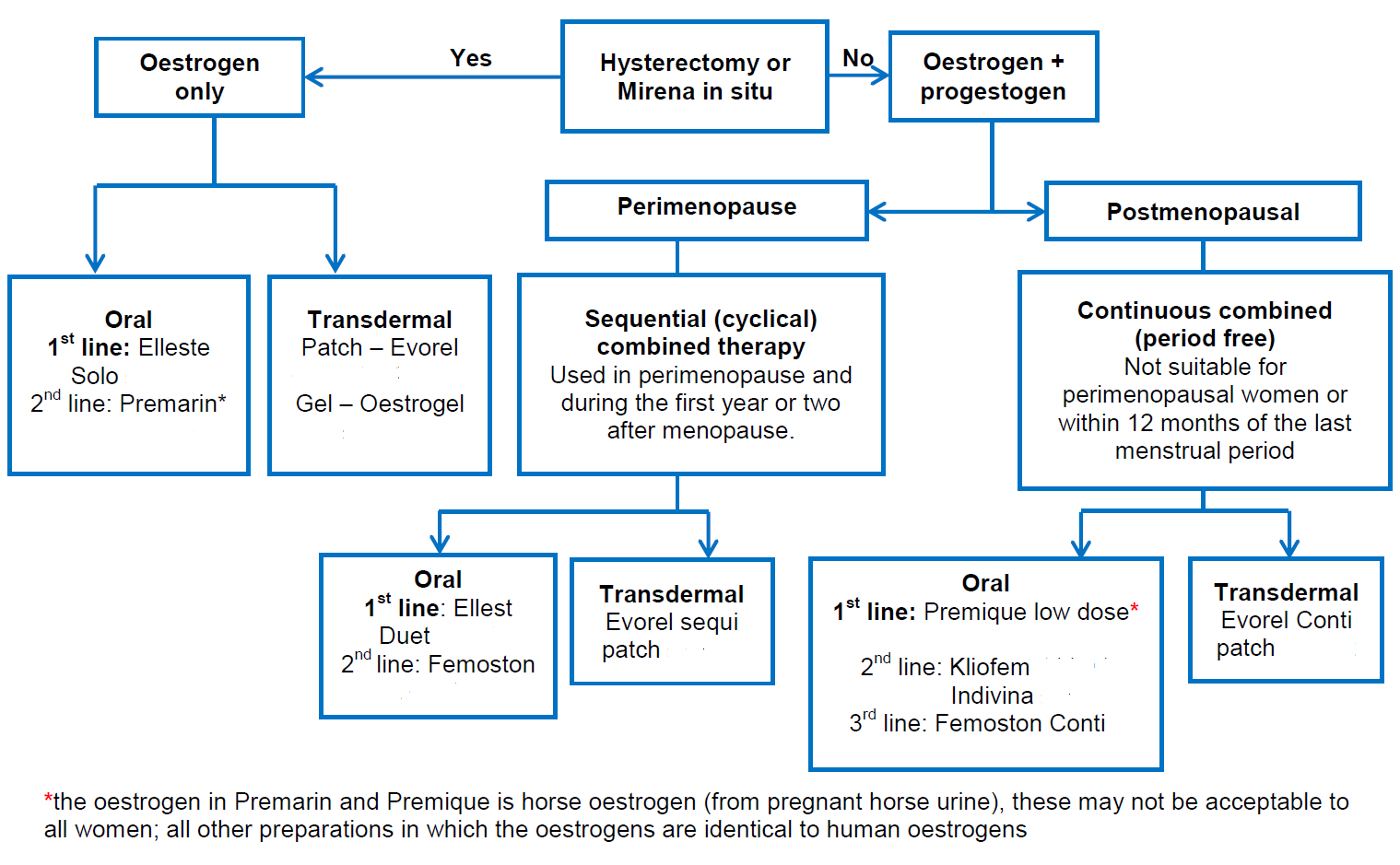HRT patches
Patches allow absorption of hormones through the skin to the systemic circulation. This pattern of absorption bypasses the liver so there is a more consistent blood level of hormone than via the oral route.
If a women still has a uterus then they will require a progestogen in addition to oestrogen.
Patches versus oral preparations
- patches are more expensive than oral preparations but may be suitable for patients with high risk of VTE (e.g. those with a BMI over 30 kg/m2) - consider referring those at high risk (strong family history of VTE or a hereditary thrombophilia) to a haematologist for assessment before considering HRT
- transdermal routes avoid the first pass effect through the liver and are not associated with increased low density lipoproteins, venous thrombosis or stroke. Patches deliver a more steady level of hormone which can be helpful in conditions triggered by fluctuating levels eg migraine.
A suggested algorithm for use of HRT is presented (1):

Notes (1):
- choice of HRT
- choice of HRT for an individual depends on an overall balance of indication, risk-benefit profile, side effects and convenience. Prescribe the lowest effective dose of HRT for the shortest time possible.

- Risks associated with HRT (1)
- HRT does not increase cardiovascular (CVS) risk when started under age 60
- HRT is not contraindicated in women with optimally managed CVS risk factors (eg hypertension, diabetes)
- consider transdermal HRT in women with a higher background VTE risk including those with a BMI over 30 kg/m2 as oral HRT is associated with a higher risk of venous thromboembolism.
- HRT with oestrogen (ET) alone is associated with little or no change in the risk of breast cancer, combined oestrogen and progestogen HRT (CET) can be associated with an increase in the risk of breast cancer: however the latter is required in women with a uterus
Reference:
- (1) Derbyshire Joint Prescribing Committee. Menopause Management Guideline (Accessed 13th March 2019)
Create an account to add page annotations
Annotations allow you to add information to this page that would be handy to have on hand during a consultation. E.g. a website or number. This information will always show when you visit this page.